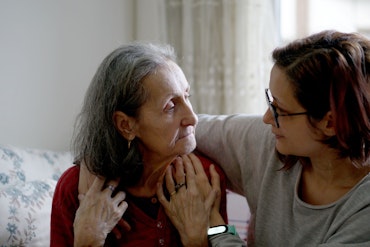A national conversation about dying
A leading international palliative care expert is calling for better education in palliative care and a public awareness campaign to get people talking about how they want to die.

Professor Rod MacLeod
Professor in Palliative Care, Rod MacLeod, says Australians need to be more open about death and talk with their family and friends about how and where they want to die.
Prof MacLeod, speaking at the start of National Palliative Care Week (22 – 28 May), says: “There are too many misconceptions around palliative care and the choices available.
“A national conversation would allow us to make better informed choices about the end of life.
“This important conversation needs to happen now.”
Prof MacLeod would like to see the Federal Government fund a public awareness campaign encouraging people to talk about how they would like to die, “which would also lead to a better national dialogue around issues of euthanasia and physician-assisted suicide”.
People should also be made more aware of the importance of advance care planning across the health system.
“Writing a will, planning for how and where you want to die – these are all issues that require thought, time and courage,” he says.
According to Prof MacLeod there should be more education in palliative care for all relevant health professionals, and palliative care training modules should be included in all relevant university courses.
“Ensuring proper training about palliative care among health professionals makes for a far better experience in palliative care.”
To ensure all Australians have access to the same services, Prof MacLeod says funding for palliative care programs and integration of existing services is crucial. Initiatives like the NSW program providing assistance for people wanting to die at home, should be made available in all states and Territories.
“We all want to meet the end of life with a sense of peace and resolution,” Prof MacLeod says.
“Unless we have an open, honest and brave conversation about death in this country, we will continue to struggle with the hard choices that face us all at the of life.”























